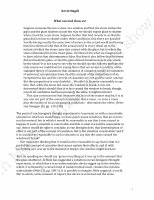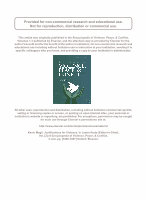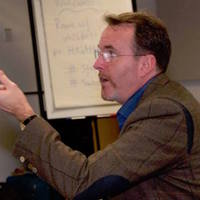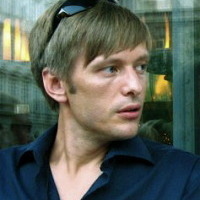Books, articles, papers by Kevin B Magill
Considers the possibility that there might be universal and beneficial human faculty for inner vo... more Considers the possibility that there might be universal and beneficial human faculty for inner voices (i.e. hearing voices in the absence of other people or audio equipment) or inner presences, and questions a widely shared assumption in psychological models and common sense thinking that inner voices are really the hearer talking to himself or herself and should ideally be recognised as such by voice hearers. Speculates about the possible benefits of universal voice hearing and, drawing on the ideas of Julian Jaynes in The Origin of Consciousness in the Breakdown of the Bicameral Mind, considers what changes and benefits that might bring in relation to our own self-conscious mentality.
Examines some existing ways of thinking about the possibility of imagining yourself in two places... more Examines some existing ways of thinking about the possibility of imagining yourself in two places at the same time, suggesting that none really involve imagining you as you are, from your singular point of view, being in two places at once. Offers a novel (as far as I know) idea about how that can be imagined.

Freedom and Experience: Self-Determination Without Illusions, 1997
Most of us take it for granted that we are free agents: that we can sometimes act so as to shape ... more Most of us take it for granted that we are free agents: that we can sometimes act so as to shape our own lives and those of others, that we have choices about how to do so and that we are responsible for what we do. But are we really justified in believing this? For centuries philosophers have argued about whether free will and moral responsibility are compatible with determinism or natural causation, and they seem no closer to agreeing about it now than at any time in the past. Many contemporary philosophers have come to the conclusion that the intractability of the old argument about free will and determinism is caused by deep rooted illusions and inconsistencies in our unreflective attitudes about moral responsibility and freedom to act. Kevin Magill challenges this view and argues that the philosophical stalemate about free will has arisen through lack of attention to the content of the experiences that shape our understanding of free will and agency and through a mistaken belief that the concept of moral responsibility requires a moral and metaphysical justification. The book sets out an original account of the various ways we experience choosing, deciding and acting, which reconciles the apparently opposing intuitions that have fuelled the traditional dispute.
The development of cognitive agent systems relies on theories of agency, within which the concept... more The development of cognitive agent systems relies on theories of agency, within which the concept of desire is key. Indeed, in the quest to develop increasingly autonomous cognitive agent systems, desire has had a significant role. We argue, however, that insufficient attention has been given to analysis and clarification of desire as a complex concept. Accordingly, in this paper, we will draw on some key philosophical accounts of the nature of desire, including what distinguishes it from other mental and motivational states, in order to identify some key characteristics of desire as a complex concept. We will then draw on these in order to investigate the role, definition and adequacy of concepts of desire within applied theoretical models of agency and agent systems.
The development of cognitive agent systems relies on theories of agency, within which the concept... more The development of cognitive agent systems relies on theories of agency, within which the concept of desire is key. Indeed, in the quest to develop increasingly autonomous cognitive agent systems desire has had a significant role. Yet we argue that insufficient attention has been given to analysis and clarification of desire as a complex concept. Accordingly, in this paper we discuss some key philosophical accounts of the nature of desire, including what distinguishes it from other mental and motivational states. We then draw on these theories in order to investigate the role, definition and adequacy of concepts of desire within applied theoretical models of agency and agent systems.

Criticises Peter van Inwagen's claim (in An Essay on Free Will) that it is possible to imagine a ... more Criticises Peter van Inwagen's claim (in An Essay on Free Will) that it is possible to imagine a stone shattering a window and that God subsequently reveals that the window, although caused to shatter by the stone, did not have to shatter. The purpose of van Inwagen's thought experiment is to argue that `it is not part of the concept of causation that a cause - or even a cause plus the totality of its accompanying conditions - determines the effect'. I argue, first, that if a stone is thrown at a window and the window fails to shatter, our natural and reasonable assumption will be that the stone was not thrown hard enough or that the window is impact resistant: in short, we will assume that the window failed to shatter because of the absence of some necessary condition for its shattering. In that case, it is part of our concept of causation that a cause, plus the totality of its accompanying conditions, determines its effect. It is also part the concept of causation that effects are explained by citing their causes, and this is inconsistent with the supposition that, given the occurrence of a cause and the totality of its accompanying conditions, its effect might not have occurred. Therefore, if God were to persuade us that a window that is caused to shatter did not have to do so, this would constitute a revision of our concept of causation.
I go on to argue that, in any case, we cannot imagine anything that could count as revealing to us that when a window shatters, given everything as it was at the point of impact, the window did not have to shatter. I argue that even if a case could be made for saying that if we have reason to believe anything, we have reason to believe what God tells us or shows us, there is nothing we can imagine that would give us good reason to believe that it would really be God, and not a hellish impostor, who is doing the showing or telling. Therefore, what van Inwagen invites us to imagine is unimaginable. I conclude that we cannot conceive of any circumstance that can give us good reason for abandoning or modifying our natural and reasonable inclination to say that when causes fail to produce their expected effects, some necessary accompanying condition must have been missing.

Encyclopedia of violence, peace, & conflict, Jan 1, 1999
Examines various arguments about whether and under what circumstances political violence can be j... more Examines various arguments about whether and under what circumstances political violence can be justified and how they can be employed in thinking ethically about violence. It begins by looking at arguments about the justifiability of violence that draw on major ethical theories such as deontology, utilitarianism and consequentialism. It then discusses more specific considerations and arguments concerning obligations to obey the law, the relationship between violence and reason, and between violence and democracy, and whether our duties and obligations regarding the use of violence are universal in scope or are limited by national, religious, community and class affiliation. Finally, it makes some novel suggestions about the overall purpose and conduct of discussions about the justifiability of violence in political theory and philosophy.
Discusses claims and arguments, not considered in 'Justifications for Violence', against the idea... more Discusses claims and arguments, not considered in 'Justifications for Violence', against the idea of reasoning morally about violence.

The Impact of Michel Foucault on the Social Sciences and Humanities, Moya Lloyd and Andrew Thacker eds,, 1996
From the Introduction to 'The Impact of Michel Foucault on the Social Sciences and Humanities':
'... more From the Introduction to 'The Impact of Michel Foucault on the Social Sciences and Humanities':
'... focuses upon the problems raised by Foucault for one central problem in philosophy, the question of freedom. One traditional philosophical position argues that in order for an individual or a collectivity truly to be free there must be an absence of power relations, or at least a sufficient diminishment of them in order that freedom can be articulated fully. Foucault's work questions this assumption and Magill examines Foucault's ambivalent attitude towards the relationship between freedom and power by situating his work within the philosophical tradition of Stoicism. For the Stoic tradition freedom is a quality obtained through certain practices of goodness and reason which are identified as a person's essential self. Foucault's work challenges this idea in his insistence that there is no essential self, only a self constructed as an effect of power by modern disciplinary technologies, and thus hampered in their ability to be a 'free self'. Magill offers a strong defence of the Stoic conception of freedom by identifying weaknesses in Foucault's account of power and subjectivity. Despite these criticisms Magill suggests that philosophical conceptions of freedom have much to learn from Foucault’s work: if we cannot escape from power, perhaps we are able to utilise the monitoring mechanisms of modern forms of power in order to create new forms of freedom. Foucault's work, Magill concludes, reminds us that philosophical questions such as the nature of freedom must be framed within a discussion of what we are, and what we might become, as human subjects.'"
Long review of Responsibility and Control: A Theory of Moral Responsibility, John Martin Fischer ... more Long review of Responsibility and Control: A Theory of Moral Responsibility, John Martin Fischer and Mark Ravizza, CUP, 1998. Evaluates and critiques Fischer's and Ravizza's Frankfurtian Compatibilism about moral responsibility, concluding in favour of the main Compatibilist alternative tradition in post-war philosophising about moral responsibility: Strawson's 'Freedom and Resentment' naturalism.

Discusses and defends Peter Strawson’s argument in ‘Freedom and Resentment’ that our practice of ... more Discusses and defends Peter Strawson’s argument in ‘Freedom and Resentment’ that our practice of holding agents responsible for their actions is not something that can be given a justification or stands in need of one, since it is not something we could choose to give up. Part 1 outlines Strawson’s arguments and replies to some recent criticisms. Part 2 argues that despite our inability entirely to relinquish blaming and holding responsible, there are considerations about the role of acquired perspectives in the initiation of wrongful actions that give us reason to question whether these are ever appropriate responses to wrongdoing. Part 3 attempts to identify and diffuse the impulse to seek a justification for holding agents responsible. Part 4 goes on to argue that the real force of the problem of moral responsibility lies in a tension in our moral sentiments about whether to blame or to try to understand particular instances of wrongdoing, and that, while there is no general philosophical resolution of this tension, we need not be faced with an irresolvable dilemma about whether to blame or to attempt to understand whenever we are confronted with wrongdoing.
"The article criticises various interpretations of Epicurus's claim that belief in determinism is... more "The article criticises various interpretations of Epicurus's claim that belief in determinism is self-invalidating:
- 'The man who says that all things come to pass by necessity cannot criticise one who denies that all things come to pass by necessity, for he admits that this too happens of necessity.' -
especially Ted Honderich's argument that the real force of the Epicurean claim is that if belief acquisition is causally necessitated, we will be excluded from possible facts and inquiries that might have produced new knowledge and might have shown some of what we take to be knowledge to be false. Honderich's argument fails to consider that undetermined inquirers might fail to make discoveries that determined inquirers could not fail to make. Determinism would not, therefore, put us in a worse position as seekers of knowledge than indeterminism."
The argument between retributivists and consequentialists about what morally justifies the punish... more The argument between retributivists and consequentialists about what morally justifies the punishment of offenders is incoherent. If we were to discover that all of the contending justifications were mistaken, there is no realistic prospect that this would lead us to abandon legal punishment. Justification of words, beliefs and deeds can only be intelligible on the assumption that if a justification were found to be invalid and there were no alternative justification, one would be prepared to stop saying, believing or doing what one has attempted to justify. Therefore, the moral standing or basis of our practices of punishing offenders cannot rest on a justification of it.

In Donald Davidson's seminal example of causal deviancy, a climber knows that he can save himself... more In Donald Davidson's seminal example of causal deviancy, a climber knows that he can save himself from plummeting to his death by letting go of a rope connecting him to a companion who has lost his footing, but the thought of the contemplated act so upsets him that he lets go unintentionally. Causation of behavior by intentional states that rationalize it is not enough for it to count as acting. Therefore, the behavior must be caused in 'the right way' or by the Right Kind of Cause (RKC). The immediate cause in Davidson's and other examples of causal immediacy is the agent's awareness or contemplation of what he or she is intending or thinking of doing, which is either caused by, or implicit in the agent's awareness of, his or her intentions or beliefs and desires. I argue that RKC can only be a mechanism - the Will - whose operation we are not directly aware of, but only indirectly once the action is underway.
Capital & Class, Jan 1, 1994
It has been claimed that the ontological theories of Roy Bhaskar can provide guiding principles f... more It has been claimed that the ontological theories of Roy Bhaskar can provide guiding principles for social scientists, which can help steer them through errors and misconceptions. This article argues that neither Bhaskar's 'Critical Realism' nor any overarching philosophical ontology can provide workable guiding principles for social scientific research and that such principles are unnecessary.
The Philosophical Quarterly, Jan 1, 1991
RP 61, Summer 1992, 1992
Inconvenient Fictions: Literature and the Limits of Theory, New Haven and London, Yale University... more Inconvenient Fictions: Literature and the Limits of Theory, New Haven and London, Yale University Press, 1991. 293pp., £25.00 hb, 0 300050577.











Uploads
Books, articles, papers by Kevin B Magill
I go on to argue that, in any case, we cannot imagine anything that could count as revealing to us that when a window shatters, given everything as it was at the point of impact, the window did not have to shatter. I argue that even if a case could be made for saying that if we have reason to believe anything, we have reason to believe what God tells us or shows us, there is nothing we can imagine that would give us good reason to believe that it would really be God, and not a hellish impostor, who is doing the showing or telling. Therefore, what van Inwagen invites us to imagine is unimaginable. I conclude that we cannot conceive of any circumstance that can give us good reason for abandoning or modifying our natural and reasonable inclination to say that when causes fail to produce their expected effects, some necessary accompanying condition must have been missing.
'... focuses upon the problems raised by Foucault for one central problem in philosophy, the question of freedom. One traditional philosophical position argues that in order for an individual or a collectivity truly to be free there must be an absence of power relations, or at least a sufficient diminishment of them in order that freedom can be articulated fully. Foucault's work questions this assumption and Magill examines Foucault's ambivalent attitude towards the relationship between freedom and power by situating his work within the philosophical tradition of Stoicism. For the Stoic tradition freedom is a quality obtained through certain practices of goodness and reason which are identified as a person's essential self. Foucault's work challenges this idea in his insistence that there is no essential self, only a self constructed as an effect of power by modern disciplinary technologies, and thus hampered in their ability to be a 'free self'. Magill offers a strong defence of the Stoic conception of freedom by identifying weaknesses in Foucault's account of power and subjectivity. Despite these criticisms Magill suggests that philosophical conceptions of freedom have much to learn from Foucault’s work: if we cannot escape from power, perhaps we are able to utilise the monitoring mechanisms of modern forms of power in order to create new forms of freedom. Foucault's work, Magill concludes, reminds us that philosophical questions such as the nature of freedom must be framed within a discussion of what we are, and what we might become, as human subjects.'"
- 'The man who says that all things come to pass by necessity cannot criticise one who denies that all things come to pass by necessity, for he admits that this too happens of necessity.' -
especially Ted Honderich's argument that the real force of the Epicurean claim is that if belief acquisition is causally necessitated, we will be excluded from possible facts and inquiries that might have produced new knowledge and might have shown some of what we take to be knowledge to be false. Honderich's argument fails to consider that undetermined inquirers might fail to make discoveries that determined inquirers could not fail to make. Determinism would not, therefore, put us in a worse position as seekers of knowledge than indeterminism."
I go on to argue that, in any case, we cannot imagine anything that could count as revealing to us that when a window shatters, given everything as it was at the point of impact, the window did not have to shatter. I argue that even if a case could be made for saying that if we have reason to believe anything, we have reason to believe what God tells us or shows us, there is nothing we can imagine that would give us good reason to believe that it would really be God, and not a hellish impostor, who is doing the showing or telling. Therefore, what van Inwagen invites us to imagine is unimaginable. I conclude that we cannot conceive of any circumstance that can give us good reason for abandoning or modifying our natural and reasonable inclination to say that when causes fail to produce their expected effects, some necessary accompanying condition must have been missing.
'... focuses upon the problems raised by Foucault for one central problem in philosophy, the question of freedom. One traditional philosophical position argues that in order for an individual or a collectivity truly to be free there must be an absence of power relations, or at least a sufficient diminishment of them in order that freedom can be articulated fully. Foucault's work questions this assumption and Magill examines Foucault's ambivalent attitude towards the relationship between freedom and power by situating his work within the philosophical tradition of Stoicism. For the Stoic tradition freedom is a quality obtained through certain practices of goodness and reason which are identified as a person's essential self. Foucault's work challenges this idea in his insistence that there is no essential self, only a self constructed as an effect of power by modern disciplinary technologies, and thus hampered in their ability to be a 'free self'. Magill offers a strong defence of the Stoic conception of freedom by identifying weaknesses in Foucault's account of power and subjectivity. Despite these criticisms Magill suggests that philosophical conceptions of freedom have much to learn from Foucault’s work: if we cannot escape from power, perhaps we are able to utilise the monitoring mechanisms of modern forms of power in order to create new forms of freedom. Foucault's work, Magill concludes, reminds us that philosophical questions such as the nature of freedom must be framed within a discussion of what we are, and what we might become, as human subjects.'"
- 'The man who says that all things come to pass by necessity cannot criticise one who denies that all things come to pass by necessity, for he admits that this too happens of necessity.' -
especially Ted Honderich's argument that the real force of the Epicurean claim is that if belief acquisition is causally necessitated, we will be excluded from possible facts and inquiries that might have produced new knowledge and might have shown some of what we take to be knowledge to be false. Honderich's argument fails to consider that undetermined inquirers might fail to make discoveries that determined inquirers could not fail to make. Determinism would not, therefore, put us in a worse position as seekers of knowledge than indeterminism."